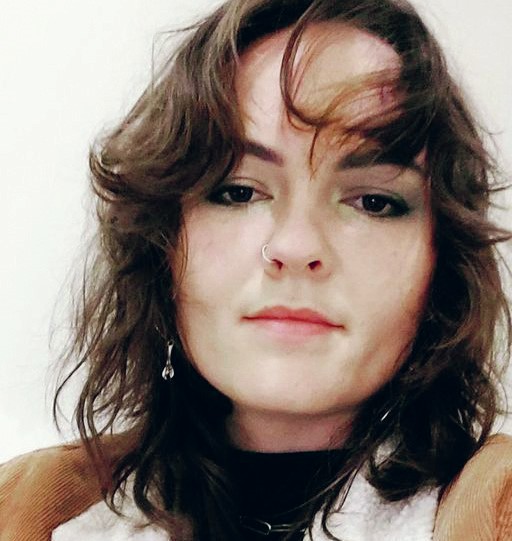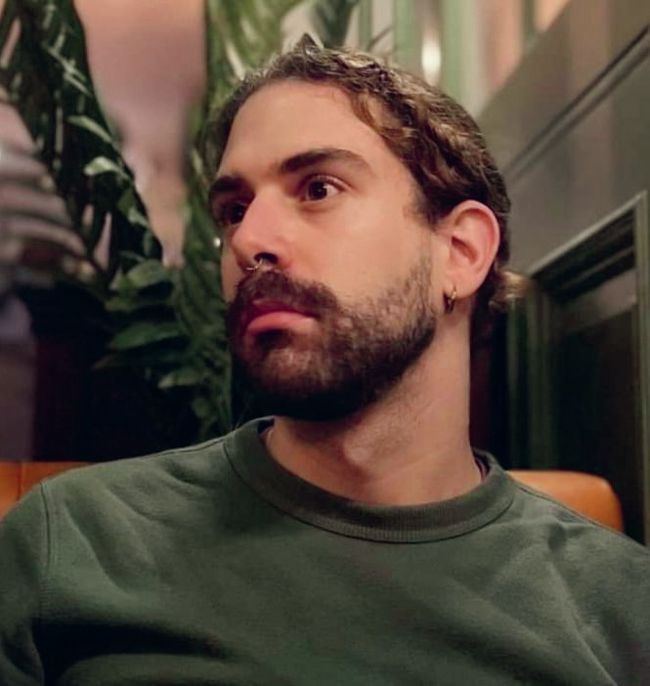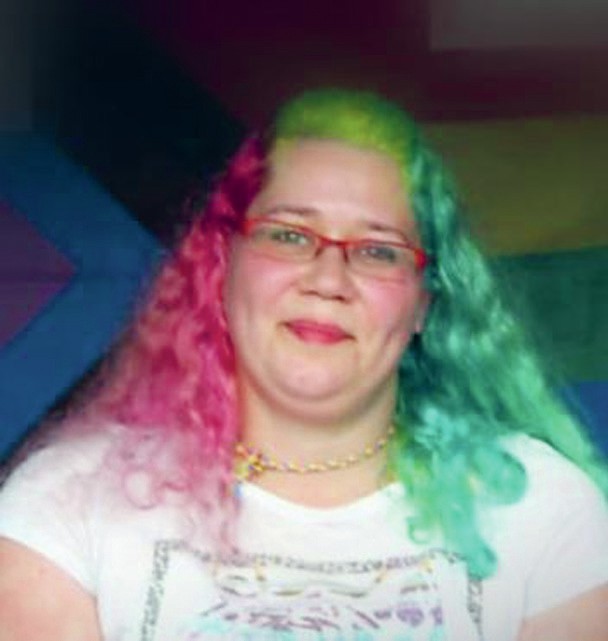Dating & Difference: NEURODIVERGENCE
When thinking about the myriad personal reasons we disregard potential partners, longterm or short-term, romantic or sexual, it would be naive to think that these reasons are not affected by more universal influences like racism, classism, body shaming, ableism and ageism, writes Adrian Colwell.
Adrian Colwell
“They’re just not my type” can be a blanket statement that covers a whole range of problematic judgements. Yes, it’s impossible to respond to every message, engage in every interaction, and go on every date to be socially sensitive (doing so might arguably be counterproductive and patronising), but is there a blurring between preference and prejudice?
Discrimination in the queer dating scene can rear its head in many ways. From random slurs being hurled on Grindr, to dodgy comments said in the face of rejection, outdated misconceptions of people from different ‘leagues’ (or demographics) dating each other, or presumptions about how someone masturbates.
Dating and Disability (an article I wrote for the December 2021 edition of GCN) explored this from my perspective of having a physical disability and how it has impacted my dating life thus far. It provoked some conversations between myself and others on their complicated routes through the dating world. This emphasised to me the many forms of queer intersectionality that exist and how they might impact on personal dating experiences. There are many ways of feeling othered, even in a minority group. My own experiences focused on how I can be seen. But what about those who feel othered for less visible reasons?
Neurodivergence (ND) is the term for people whose brains function differently in one or more ways than is considered standard or (neuro)typical (NT). Several recognised types of neurodivergence include; autism, anxiety disorder, depression, dyslexia, dyspraxia, attention deficit disorder (ADD), and obsessive-compulsive disorder (OCD). I interviewed three people from the queer and neurodivergent community about their dating experiences. This selection of personal stories is just that and is not fully representative of the entire community -a community which is extremely varied.
With that, please meet Denise, Haris, and Charley:
WHEN DO YOU USUALLY TELL A DATE ABOUT BEING NEURODIVERGENT?
Denise Donnelly (They/Them), 31, Belfast: Usually I’ll tell them on the first date. Especially if my attention wanders, I’m struggling to make eye contact or lose my train of thought. I apologise for myself constantly, though I try not to do that as much anymore, but I’ll often explain that I have ADHD and it allows me to relax and be myself without having to explain some of my behaviours.
Haris Karakonstantakis (He/Him), 29, Dublin: It depends on how we met. I am quite clear about it on my online dating profile and most of my social media. But I am not always sure whether they have actually read it and/or understood what it means. I usually have no problem bringing it up anyway, but I will wait for the right opportunity rather than go “Hi, I’m Haris, Greek, screenwriter, autistic”.
Charley Utting (They/She), 30, Leitrim: It varies. As I have multiple neurodivergencies, dyslexia is easy to bring up early on as people are more familiar with it. Dyspraxia usually takes more explaining, so I tend to wait until that comes up naturally as it’s a lot more effort. As for my other probable neurodivergenices (Autistic Spectrum, OCD, ADD) they sort of come up a bit at a time due to my “kooky” personality, often I don’t get that far as folk might not like the personality traits I have because of them.

Denise

Haris

Charley
WHAT SORT OF REACTIONS DO YOU USUALLY GET?
Denise: I don’t think I’ve had a negative reaction and actually more often the other person will either have a current diagnosis or be pre-diagnosis and questioning their own neurodiverse identity. I’m bisexual and though I haven’t dated a cis-gendered man for many years, I have this feeling that I would have to consistently educate them on my gender identity and neurodiverse experience and I really don’t have the bandwidth to do that anymore. Whereas the queer people I have dated are much more self-educated and experienced with neurodiversity in themselves and/or others. Haris: Mixed. Some people dismiss it. Whether it’s because they have no idea what I just said or they get too awkward to address it, I don’t know. Some (probably most, but I guess that speaks more about my taste in men rather than what most people would do) ask why I feel the need to bring it up. I generally don’t know how to respond to that. I usually try to hide my frustration and just say something along the lines of “I am just trying to help you understand why I might be awkward/odd/whatever,” which I absolutely hate. But how do you even answer such a question? Mind you, I don’t think it always comes from a bad place. A good parallel would be when gay people are asked why they exhibit their sexuality and not keep it private. Yet, even gay people fail to understand that being autistic isn’t separate to my personality. Lastly, there are those that ask questions. I am completely open to that. I am a firm believer that education on such issues should come from within the community, at least to those that are open to it.
Charley: Varying, from people with very sympathetic looks (you’d think I’d told them I was terminally ill), to people who want to “save” me, to people who completely dismiss my neurodivergence, to people who think that I am looking for attention or handouts… to people who say they wish they were like me, as if I’m superhuman. I still don’t know how to respond to some of these, especially the people who seem to think I have some sort of super power. It’s not all bad though, there are the people who just get it. They usually just create a space where I feel supported, respected and comfortable telling them if something is an issue. They often do so with a bit of humour sometimes too. “So no scrabble in a noisy bar followed by ice-skating in asymmetric patterns for the second date then?” These are the best people, but they are so rare.
HOW DOES BEING NEURODIVERGENT AFFECT YOUR APPROACH TO DATING?
Denise: I try to suss people’s understanding and compassion levels as I’m speaking to them online and offline. I am probably far too hyper-vigilant but I find that if someone is flippant or dismissive of things like gender and sexuality it indicates to me that they are probably not going to be as understanding of neurodiversity either. I think I spend a lot of my time assessing whether the person I’m speaking to is “safe” to be myself around which makes me quite guarded and critical in my dating approach.
Haris: Being autistic is an integral part of my personality, I don’t know which parts of myself stem directly from it. I guess I struggle quite a lot with reading and understanding people, which is crucial during first dates. People have ghosted me and I never understood why (though isn’t that really a sign of our times?) and I can never ever tell whether someone likes me or not, which leaves me riddled with trust issues and potentially make me slightly more insecure and obsessive than I should be after a first date. I also feel quite comfortable expressing myself after a first date, discussing what I liked about the date and what I didn’t, which I have noticed that most neurotypicals interpret as me moving too fast. Or maybe it’s Irish men.
Charley: Honestly it makes me avoid it. Having to explain it all to someone (who probably won’t get it) is exhausting!
I don’t want a saviour or carer. I also don’t want to be called a liar, attention seeker or superhuman. I’ve taken to just socialising in spaces that are for NDs or Disabled LGBTQ+ folk (like Neuro Pride Ireland or Full Spectrum Ireland). Not that they are dating spaces, but at least if I do by chance meet someone through those spaces I know they’ll more than likely understand.
HAVE YOU EXPERIENCED DISCRIMINATION IN THE QUEER DATING SCENE? IF SO, HOW?
Denise: Since I have become very open on dating profiles about my gender and sexuality I don’t get as many matches. I’m okay with that though, it helps potentially weed out people who aren’t as understanding. Because I don’t tend to go on physical dates with people unless I feel they are relatively “safe” in terms of their values around gender/ sexuality/neurodiversity I don’t tend to witness it on a faceto-face basis. But I know being open on social media about my neurodiversity can sometimes put people off.
Haris: Some people won’t date me because I have long hair! Seriously though, not really. However, I think it’s because I am “lucky”. My autistic traits are mostly internal as far as I have discovered. “I don’t look autistic” as I often hear and want to pluck my eyes out with a pitchfork. I do believe that my behaviour scares guys away because of those autistic traits (I can be “too much” or “too awkward”), which I wouldn’t call discrimination per se. But most decide they don’t wanna wait around and discover what I have to offer past that.
Charley: I’ve been told I’m “too awkward to date” or I need to “compromise more” which makes me feel like I’m to blame and other people don’t need to work on their understanding. This hasn’t been said by prospective partners, but by others in the community when dating is brought up in conversation. You’re supposed to be honest and open in a relationship, to me masking my neurodivergence feels like a form of lying.
HOW DO YOU THINK NEURODIVERGENCY IS PERCEIVED BY THE WIDER QUEER COMMUNITY?
Denise: As someone who used to think they were neurotypical for most of their life; I think large parts of the queer community consciously and subconsciously “other” ND people and feel entitled to do so as they have experience “othering” themselves. It’s like “we are weird but they are weirder”. I definitely don’t think that is 100 percent the case though because I have been lucky enough to build a community of queer and some non-queer friends who acknowledge and value my identity and the identity of others. We are collectively trying to build and contribute to more inclusive spaces.
Haris: Unfortunately, awareness around neurodivergence, until very recently, wasn’t seen as hip or woke enough to be educated on, and the queer community was no exception. Thankfully though, adult neurodivergence is finally talked about. And it is crucial to be aware of it in the queer commmunity. Autistic people are around three times more likely to identify as bisexual. Studies have shown that around one to five percent of the general population is autistic. But if we focus on gender-diverse people that rises to around 25 percent.
Charley: We can be swept under the rug and treated like a nuisance if we don’t stay out of sight. Often we can be treated like children, not adults who have desires and wants.
It is still often assumed that if you’re ND you’re probably asexual (which is fine if you are) but I’d feel confident saying most of us aren’t, we can be very sexual, and that needs understanding. Honestly it results in a lot of people being in the closet, we’re out as LGBTQ+ but then hiding our ND side.
ARE THERE ANY BENEFITS OF BEING NEURODIVERGENT WHEN IT COMES TO DATING?
Denise: Now that I am educated on myself, needs, traits and triggers I can be more discerning and have better boundaries. I notice things emotionally and physically that others don’t and make connections that not everyone else sees. If I really like someone my hyper focus will have me planning and dreaming up ways to create something they like or facilitate an event that would make them happy. I have a really childlike awe of so much of the world and when I enjoy something I really enjoy it and I think that gives others permission to connect with that part of themselves too.
Haris: “Lol, no” would be the easy answer. But, I don’t really know. Or care. My neurodivergence is part of who I am and I wouldn’t change it for anything.
Charley: Because I’ve had to learn to read people, I find it fairly easy to tell when people are being less than fully honest, so it does help filter out the wheat from the chaff.
Not sure there’s many benefits to walking into stuff... though sometimes it can make for a funny story.
Special thanks to Neuro Pride Ireland for their support with this article: www.neuropride.ie